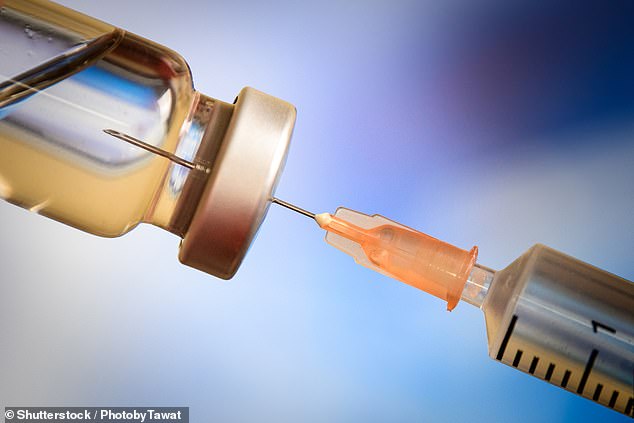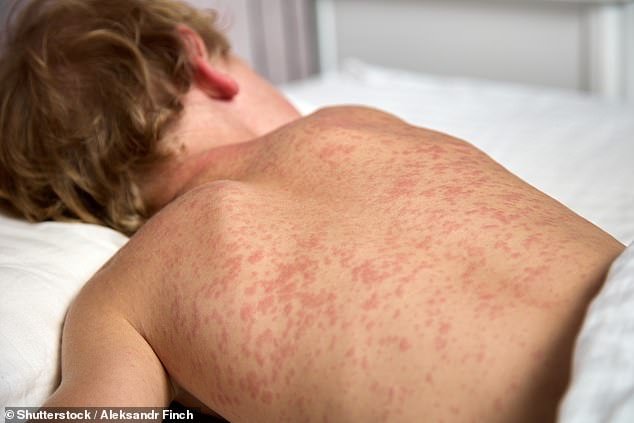A single dose of the measles vaccine is two and a half times more likely to be completely ineffective in children born by cesarean section, a study suggests.
Experts found that 12 percent of children born by cesarean section had no immune response to their first measles, mumps and rubella (MMR) vaccine, compared with 5 percent of children born normally.
The findings have sparked warnings about children only receiving the first dose of the vaccine, which is usually given on the NHS to babies aged between 12 and 13 months.
The second dose is usually given to children between three years, four months and five years old.
But data shows that only 85 percent of children have received both doses by the age of five, which is below the 95 percent needed to stop the spread of the disease.
Experts found that 12 percent of children born by cesarean section had no immune response to their first vaccine (MMR), compared to 5 percent of children born normally (File image)
Researchers from the University of Cambridge and Fudan University in China examined data from 1,505 children.
The researchers said C-section births were “associated with a 2.56 increased odds of primary vaccine failure” compared to naturally born babies.
However, C-section children who received a second dose of measles vaccine had robust immunity against the disease.
The study suggests that the lack of immunity in children from cesarean section is related to the development of the baby’s gut microbiome, which are microbes that live naturally within the intestine.
Other studies have shown that a vaginal birth transfers more varied microbes from mother to baby, which can boost the immune system.
Professor Henrik Salje, co-senior author of the study, said: “With a cesarean birth, children are not exposed to the mother’s microbiome in the same way.”
“We believe this means that it takes them longer to recover in the development of their gut microbiome and, with it, the ability of the immune system to prepare through vaccines against diseases such as measles.

The first dose of the vaccine is usually given to babies between 12 and 13 months old. The second dose is administered to children between three years, four months and five years (File image)
“Babies born by C-section are the ones we really want to follow up to make sure they get their second measles vaccine, because the first vaccine is much more likely to fail.” Professor Salje added that “measles tops the list of diseases that worry us because it is very contagious.”
Dr Mary Ramsay, director of immunization at the UK Health Security Agency (UKHSA), said: “Our evidence suggests that two doses of the vaccine are highly protective, and the majority of cases we see are in children. not vaccinated”.
Adam Finn, professor of paediatrics at the University of Bristol, said the research “raises important questions that need to be investigated further.”
The study was published in the journal Nature Microbiology.

